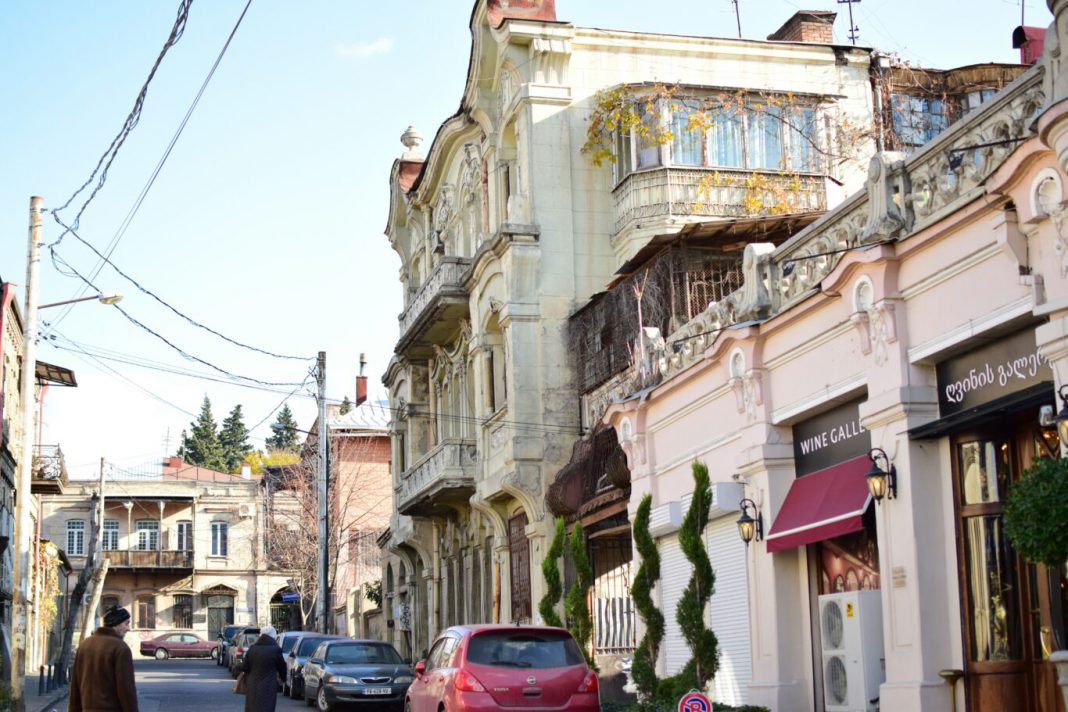Re-engaging with neighbours in a state of war and geopolitical tensions
Francesco Strazzari, Professor in International Relations at Scuola Universitaria Superiore Sant’Anna; adjunct professor at the Bologna-based SAIS Europe – The Johns Hopkins University
Ketevan Bolkvadze, Senior Lecturer, Department of Political Science, Lund University
Maia Machavariani, Director of Programs at the Eastern European Centre for Multiparty Democracy (EECMD)
Natalia Stercul, Associate Professor, Political Analyst
Oleksandr Sniadanko, Legal Adviser at Alcor; Researcher at the Jean Monnet Centre of Excellence and for Re-Engage
Roman Petrov, President of the Ukrainian European Studies Association and Head of the Jean Monnet Centre of Excellence in European Studies
Sophie Gueudet, Research fellow at the Scuola Superiore Sant’Anna in Pisa, associate researcher with the PeaceRep Ukraine programme at the London School of Economics and Political Science
Valentina Teosa, Associate Professor at the Moldova State University
Summary
This paper examines the dynamics of hybrid regimes in Georgia, Moldova, and Ukraine, focusing on their susceptibility to foreign interference amidst geopolitical tensions. It explores how these regimes, characterized by a mix of democratic and authoritarian practices, create fertile grounds for external actors like Russia, China, and Turkey to exert influence. By leveraging economic dependencies, media manipulation, and soft power tools, these actors challenge EU democracy promotion efforts. The study highlights the interplay between entrenched domestic elites, external pressures, and societal polarization, emphasizing the role of informal power structures. It also investigates civic resistance and the implications for resilience and state sovereignty. Ultimately, the analysis offers insights into the challenges and strategies for bolstering democratic resilience in the Eastern Neighbourhood.
Introduction
The post-independence trajectories of Georgia, Moldova, and Ukraine toward the consolidation of hybrid regimes have oscillated between democratic and authoritarian practices. Rather than transitioning toward fully-fledged liberal democracies, these regimes represent a distinct type of governance characterized by hybridity—a multifaceted phenomenon arising from the coexistence of new and former incumbent and extra-incumbent elites within a stable yet enduring status quo (Bolkvadze, Gueudet, Machavariani, Petrov, Putină, Sniadanko, Strazzari, & Teosa, 2024). This hybridity has led to the concentration of power in extralegal political and economic structures and the emergence of interconnected nexuses linking business and politics, media and politics, and organized crime and politics.
Building on the defining characteristics of hybrid regimes, the current paper seeks to examine the extent to which regime hybridity shapes the responsiveness, vulnerabilities, and resilience of our case study countries to foreign interference from external actors identified by Daniel et al. as the EU’s competitors in the region (2024). In a context of global (geo)political fragmentation, war, and ruthless strategic competition, the Eastern Neighbourhood has become a coveted region. Understanding the competing agendas, strategies, and toolkits of Russia, China, and, to a lesser extent, Turkey is crucial for the EU. Drawing on insights from our colleagues’ paper on “External Actors’ Engagement in the Western Balkans and Eastern Europe,” this paper aims to assess the negative influence exerted by “black knights” (Levitsky & Way, 2010, p. 41) on democratic systems—or, in this case, on systems characterized by persistent authoritarian tendencies rather than full democratization.
Also referred to as “autocracy promoters” or “negative external actors” (Ambrosio, 2009; Tolstrup, 2009, 2014), these actors engage—often covertly—in disruptive activities that undermine the democratization process or democratic governance in targeted countries, thereby playing a key role in sustaining authoritarianism (Tolstrup, 2015). While authoritarian powers like Russia are typically seen as the primary actors in strengthening authoritarianism and regressing democracy in their neighborhood, democratic external actors can also act as black knights. In regions where autocratic incumbents serve their interests, these actors may engage in practices ranging from counter-insurgency support (Ladwig, 2017) to imposed regime changes (Downes, 2021), election meddling (Tolstrup, 2014), and patron-client relationships (Scott, 1972).
This paper covers countries whose strategies and toolkits for engagement may obstruct or disrupt EU democracy promotion efforts in the Eastern Neighbourhood. It explores how the engagement of negative external actors—Russia, China, Turkey, and, to some extent, the United States, given its potential for unilateral and confrontational foreign policy—has generated dynamics of linkage and leverage. These dynamics profoundly impact the political trajectories of target countries, contingent on the compliance or resistance of gatekeeper elites. As Tolstrup (2013) argues, external actors risk becoming mere spectators unless incumbent and extra-incumbent elites are willing to cooperate.
We argue that, given the hybrid nature of political regimes in Georgia, Moldova, and Ukraine, the receptiveness of incumbent and extra-incumbent elites to external actions designed to undermine democratization is significant. This receptiveness creates easy inroads for black knights, enabled by pre-existing power structures and nexuses. Moreover, our previous background paper highlighted the highly polarized political arenas and the poor quality of state-society relations in these countries, leading to low vertical trust and weak social cohesion. As such, the resilience of both societies and states against negative external actions is much lower than in fully-fledged democratic systems, which require high levels of social trust, legitimate state and non-state actors, and effective, inclusive government institutions (Stollenwerk, Börzel, & Risse, 2021). Without sufficient horizontal and vertical trust, hybrid regimes in our case studies lack the resilience to shield themselves from negative external influences, as hypothesized by RE-ENGAGE (Giske et al., 2014).
Ultimately, this paper seeks to determine how hybrid regimes provide fertile ground for competing foreign powers to deploy their strategies and toolkits and how these efforts affect the EU’s democracy promotion. First, we examine the elements of hybridity that facilitate foreign interference in domestic politics. These elements include the transboundary networks of state and non-state actors that penetrate extralegal political and economic structures. Next, we analyze the polarized perceptions and varied receptions of negative external actors and their policies among gatekeeper elites, their opponents, and society at large. This analysis allows us to assess whether these dynamics structure partisan debates and lead to mobilization, either in favor of or against these actors. Finally, we evaluate the levels of linkage and leverage established by these actors in our case study countries and their transformative power. This assessment will illuminate the resilience and counteractions available to these countries, as well as the challenges posed to EU democracy promotion efforts.
ABOUT RE-ENGAGE
Russia’s war against Ukraine has radically altered European security. Confronted by the direst security crisis in decades, EU policymakers are forced to fundamentally rethink their security policies. Europe has demonstrated unexpected unity and resolve, adopting a series of sanctions against Russia, increasing national defence spending, but also by deciding on a historic revival of the EU enlargement process. Still, there is an urgent need to make sure that this process contributes to democratic, well-functioning and stable neighbourhood states, capable of countering external threats, particularly those posed by hybrid warfare. A thorough investigation is required to determine how this can be achieved without compromising the EU’s values and security in the current context. RE-ENGAGE’s overarching ambition is to assist the EU in refining its foreign policy toolbox, including its enlargement and neighbourhood policies. This will enhance the Union’s geopolitical leverage and provide better tools for democracy promotion in its neighbourhood. To achieve this goal, RE-ENGAGE will conduct in-depth studies in six candidate countries – three in the Western Balkans (Albania, Bosnia & Herzegovina and Serbia) and three in the Eastern Neighbourhood (Georgia, Moldova and Ukraine).
This project has received funding from the European Union’s Horizon Europe research and innovation programme under grant agreement No 101132314
Download PDF: https://re-engaging.eu/wp-content/uploads/2024/12/D7.2-FINAL-mise-en-page-002.pdf






